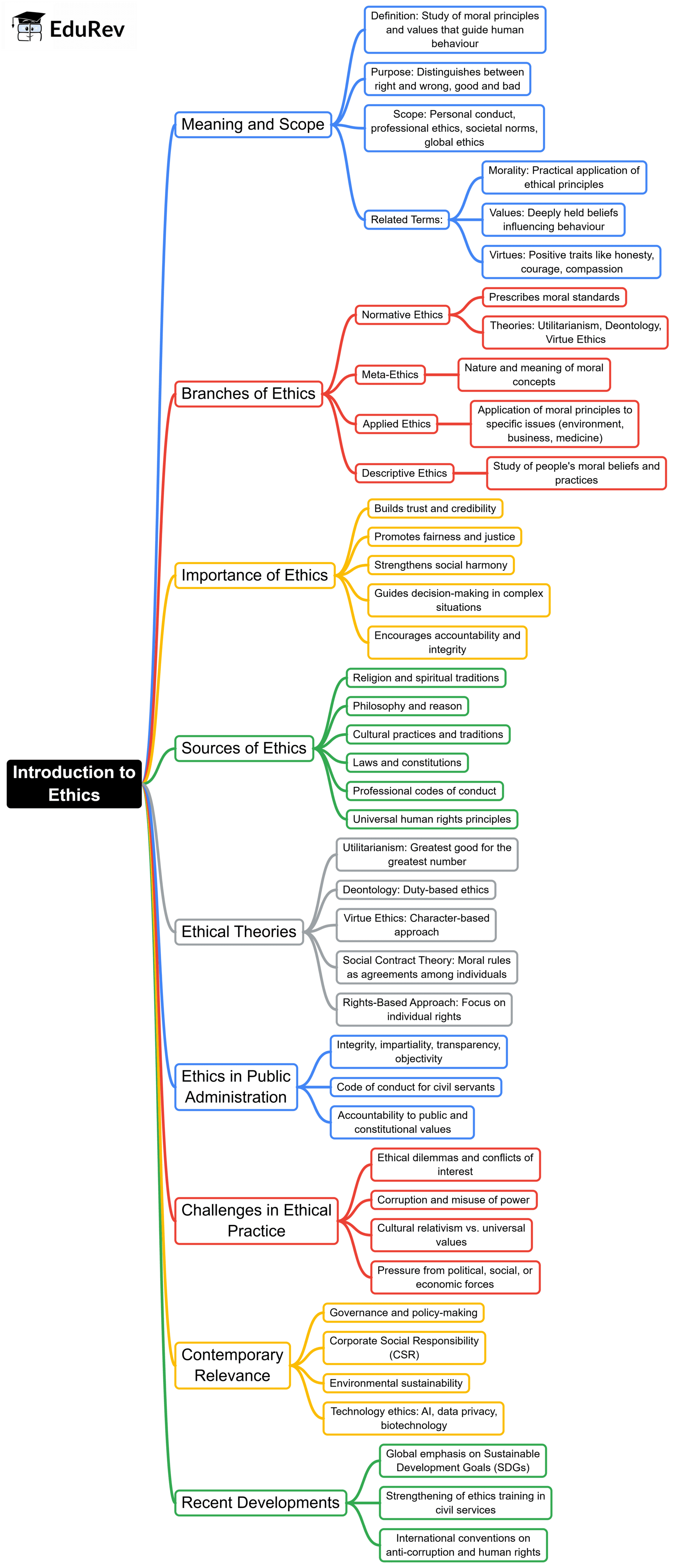UPSC Exam > UPSC Notes > UPSC Mains: Ethics, Integrity & Aptitude > Mind Map: Introduction to Ethics
Mind Map: Introduction to Ethics | UPSC Mains: Ethics, Integrity & Aptitude PDF Download

The document Mind Map: Introduction to Ethics | UPSC Mains: Ethics, Integrity & Aptitude is a part of the UPSC Course UPSC Mains: Ethics, Integrity & Aptitude.
All you need of UPSC at this link: UPSC
|
78 videos|138 docs
|
FAQs on Mind Map: Introduction to Ethics - UPSC Mains: Ethics, Integrity & Aptitude
| 1. What are the main branches of ethics? |  |
Ans. The main branches of ethics include normative ethics, which explores the standards for determining what is right and wrong; meta-ethics, which examines the nature of ethical properties, statements, and judgments; and applied ethics, which deals with the application of ethical principles to specific issues, such as medical ethics, environmental ethics, and business ethics.
| 2. How does ethical theory influence decision-making in public service? |  |
Ans. Ethical theory significantly influences decision-making in public service by providing frameworks that guide individuals in evaluating actions based on moral principles. Normative ethics helps establish what constitutes right conduct, while applied ethics enables public servants to navigate complex issues such as justice, accountability, and public welfare, ensuring decisions align with ethical standards and promote the common good.
| 3. What role does integrity play in ethics for civil servants? |  |
Ans. Integrity is a fundamental component of ethics for civil servants as it fosters trust and accountability in public administration. Civil servants with integrity adhere to ethical guidelines, maintain transparency in their actions, and uphold the principles of fairness and justice. This commitment to ethical conduct is essential for fostering public confidence and ensuring effective governance.
| 4. What is the significance of ethical dilemmas in public administration? |  |
Ans. Ethical dilemmas in public administration are significant as they highlight the challenges faced by civil servants when confronted with conflicting moral principles or obligations. These dilemmas require careful consideration and the application of ethical reasoning to navigate complex situations, making them crucial for the development of ethical judgment, critical thinking, and problem-solving skills in public service.
| 5. How can training in ethics enhance public administration practices? |  |
Ans. Training in ethics can enhance public administration practices by equipping civil servants with the knowledge and skills necessary to identify ethical issues, analyze them critically, and make informed decisions. Such training fosters a culture of ethical awareness, promotes accountability, and encourages adherence to ethical standards, ultimately leading to improved public trust and the effective delivery of services.
Related Searches
















